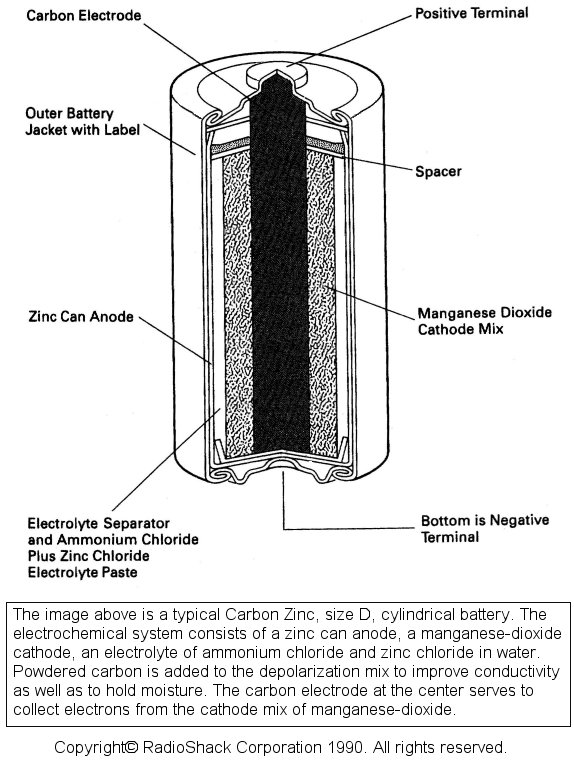Energy can be defined as the ability to do work. Electrons possess energy and this energy can be converted to another form to do work (make a lightbulb shine, motor run, etc). This energy is called electric potential energy.
Definitions:
Electric potential energy: energy that the battery gives to the electrons; the amount of energy the electrons have.
Voltage (V): the difference in electric potential energy at one point in a circuit compared to another point. It can be used as a measurement of the amount of energy the battery has or the amount of energy passed to loads within the circuit. It is measured with a voltmeter (placed parallel to the circuit) and has units of volts (V).
How batteries work.
Consider the water pump analogy. The water is lifted above the wheel and then falls due to gravity which turns the wheel. This is an example of gravitational potential energy. The falling water makes the wheel turn.
A battery (dry cell) works in a similar way. Chemical reactions in the cell gives energy to the electrons in the circuit. The electrons now have the ability to do work when they pass through a load.

